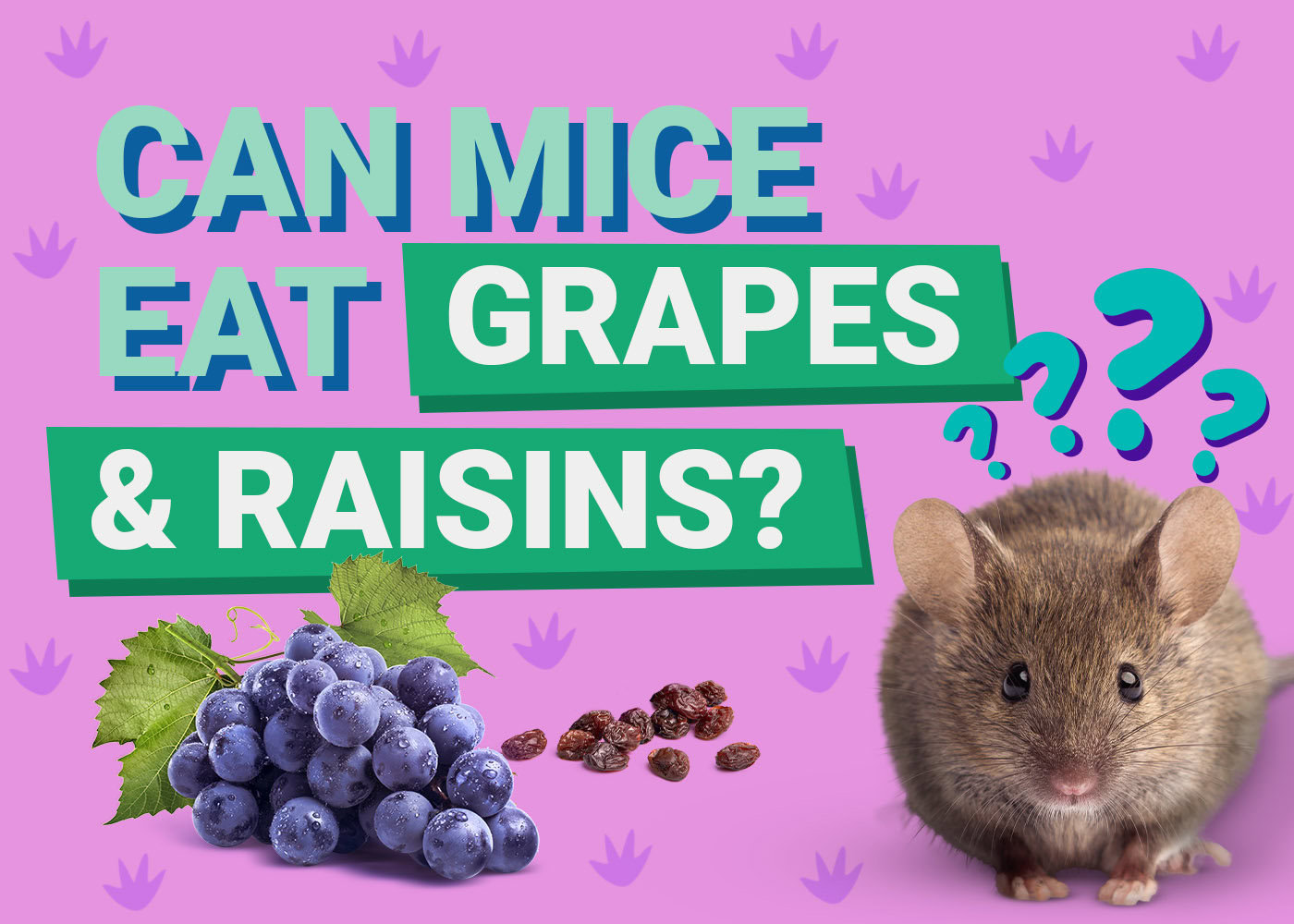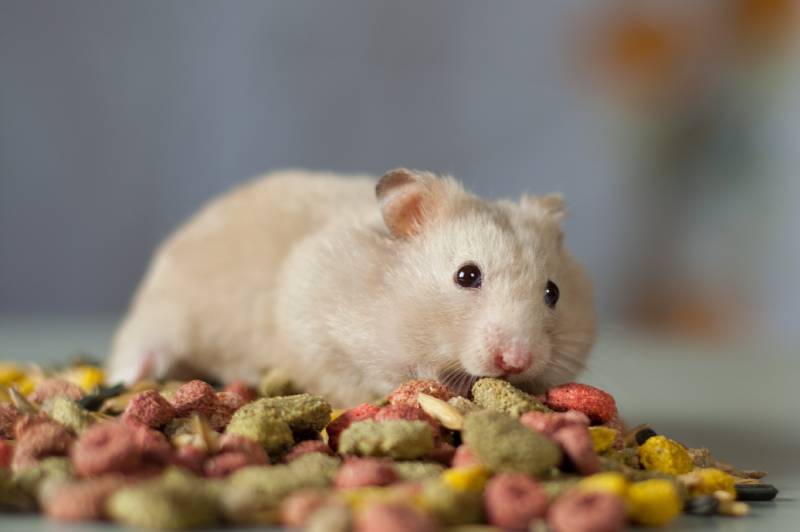VET APPROVED

The information is current and up-to-date in accordance with the latest veterinarian research.
Learn more »Click to Skip Ahead
If you have a pet mouse and wonder if they can eat grapes and raisins, the short answer is no. Grapes and raisins are toxic to pet mice, and you shouldn’t offer them to your mouse. However, there is a considerable amount of confusion surrounding this subject, so keep reading while we explain this in more detail.
Are Grapes and Raisins Bad for Your Mice?
While the mice that sneak into our homes seem to eat anything they can find, grapes and raisins are poisonous to them, and as such, they shouldn’t be offered to your pet mouse/mice. Other foods considered toxic for mice include the following:
- Rhubarb
- Walnuts
- Caffeine (via coffee, tea, etc.)
- Chocolate
- Alcohol
- Raw dough (will cause alcohol poisoning)
There is no established toxic grape or raisin dose for mice in the medical literature. Therefore, It’s best to err on the side of caution and not offer them any grapes at all. Your pet will not miss out on any nutrition if they aren’t offered grapes.
Grapes and raisins are thought to be toxic for mice, similar to how they are toxic for dogs and cats; they are thought to induce rapid kidney damage, which can result in an inability to produce urine. In turn, this can lead to sudden death. The true principle of toxicity has not yet been determined (though it is thought to be possibly linked to the tartaric acid found in grapes).
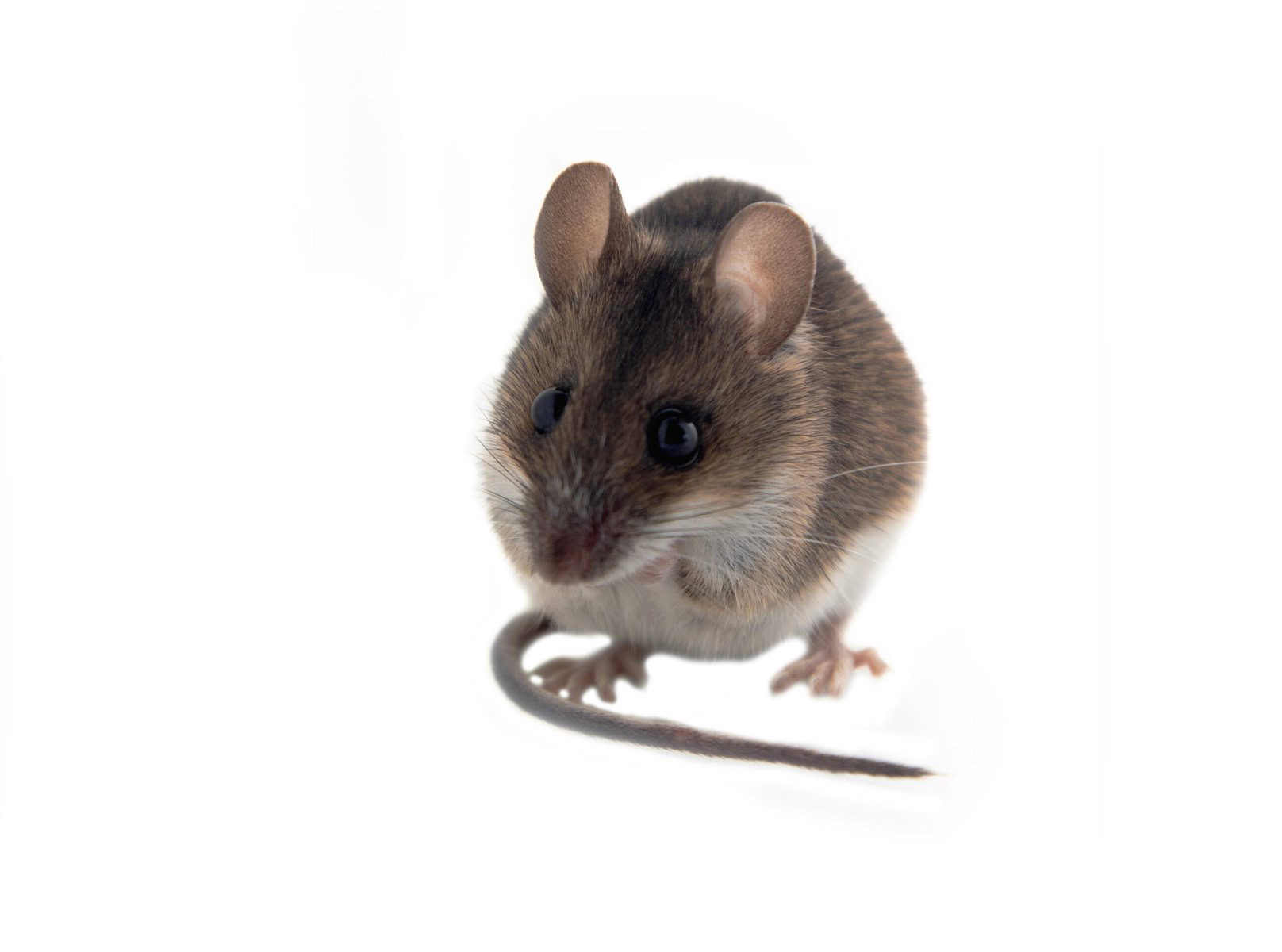
If Your Mouse Has Eaten Grapes or Raisins
If your pet mouse/mice have gotten a hold of grapes or raisins, it’s best to take them to your veterinarian promptly. An exotic veterinarian would be preferred, as they may have the equipment necessary to medicate and treat your pet. Given the small size of mice, such specialized equipment may not be readily available at all veterinary clinics and hospitals.
There is no antidote for grape or raisin toxicity. The objective of the treatment is to try and provide supportive treatment for your pet and decontamination of the gastrointestinal tract if possible. You should not try to induce vomiting for your mouse/mice at home – not only is this not recommended for any pet in general, but rodents cannot vomit (so efforts to induce vomiting will never work).
What About Grape Seeds?
The confusion surrounding grapes is probably due to the fact that grape seed extracts are frequently researched on mice to determine if the extract could possibly be useful for humans. Indeed, research involving grape seed extract using mice as a research model have, at times, shown promising results. However, this doesn’t mean you should offer your pet grape seeds. Nor does it mean that grapes are safe for mice. There are several reasons for this.
- Many experiments are done in vitro – This means that mice cells are used for the experiments, and the procedures are done in a petri dish and not in a living organism. As such, this doesn’t render grape seeds safe for your pet.
- Quantity matters – Many experiments involving grade seed extracts use specific dilutions or concentrations of the extract. This wouldn’t be something you could replicate for a pet.
- Research purpose—The purpose of much of this research isn’t to ascertain the safety of grape seed extracts in mice but rather to see if the extract can be beneficial to humans in some way.
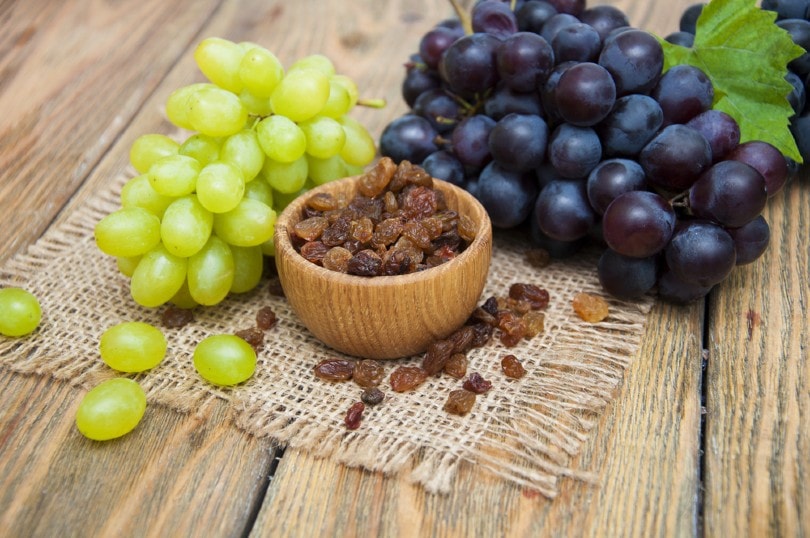
What Foods Are Safe For My Mice?
Though grapes and raisins should definitely be off the table for your mice, this doesn’t mean that there aren’t other options you could consider including in their diet.
- Apples (but not the seeds)
- Most green vegetables
- Celery
- Carrots
- Peas
- Cooked, unseasoned pasta
- Mealworms
Remember that these foods should be complemented with a staple pellet diet for your pet mice.
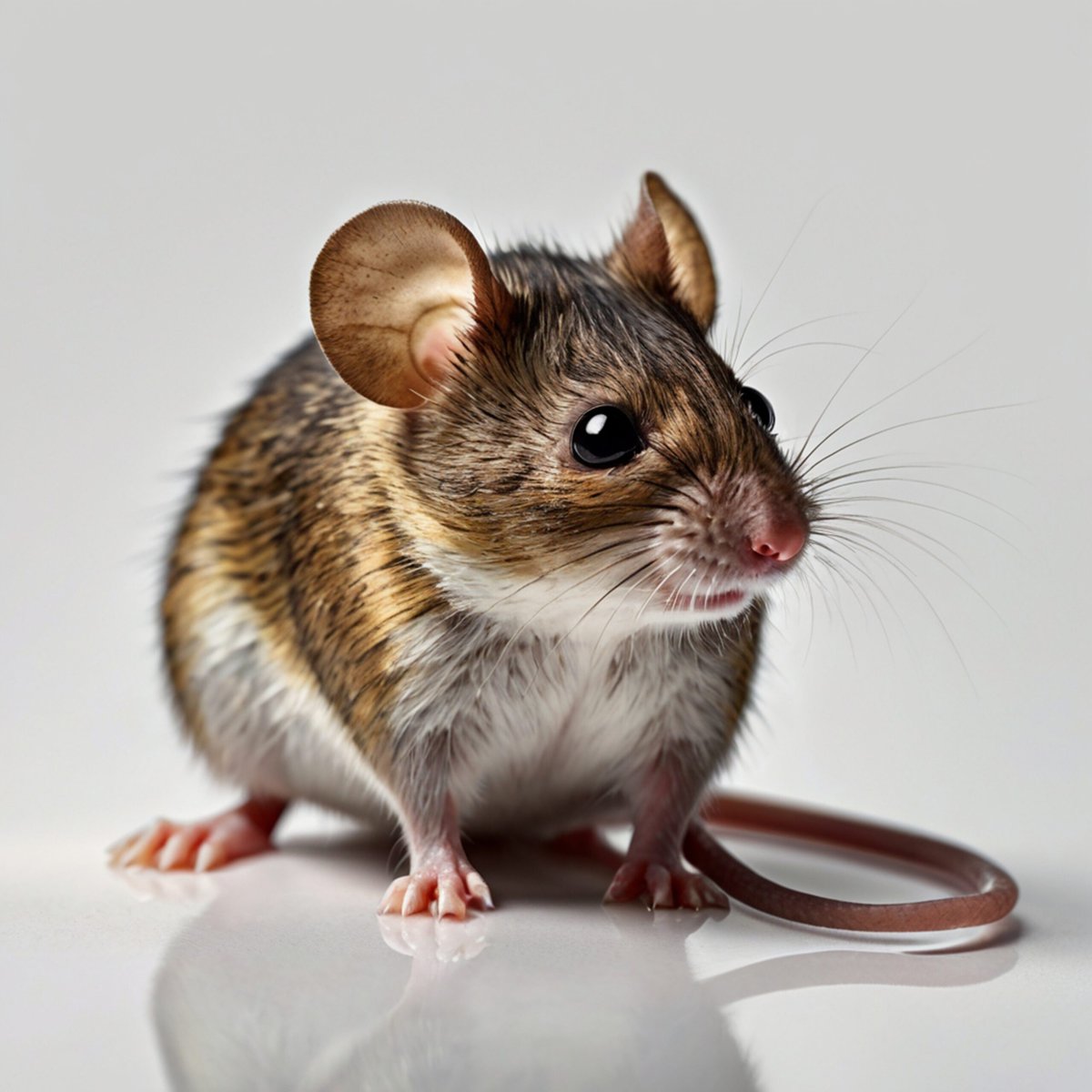
Summary
Mice should not be offered grapes and raisins since they are toxic. Though grape extract (particularly the seeds) has been used on mice in experiments, it’s important to note that such research doesn’t render grapes or raisins safe for your pet.
Safe alternatives exist for pet mice, including some options that might be in your pantry. As always, we strongly recommend consulting your veterinarian for more information about your mouse’s nutritional needs.
See Also:
- https://www.rspca.org.uk/adviceandwelfare/pets/rodents/mice/diet
- https://www.gov.gg/CHttpHandler.ashx?id=102162&p=0#:~:text=For%20variety%2C%20small%20quantities%20of,cause%20them%20to%20have%20diarrhoea.
- https://pubmed.ncbi.nlm.nih.gov/35189519/
- https://pubmed.ncbi.nlm.nih.gov/25966753/
- https://pubmed.ncbi.nlm.nih.gov/25754417/
Featured Image Credit by Dream79, Shutterstock
